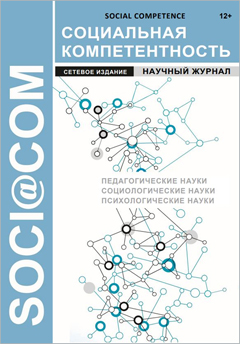Violence in schools and the protection of social justice
Keywords:
violence, forms of violence in schools, defensive aggression, boundaries of what is permissible, social justiceAbstract
The article deals with issues of concern related to violence (bullying) in schools and school institutions. As an international phenomenon, it is considered on the analysis of works from the USA, Europe, South Africa, Egypt, Russia. All issues related to violence committed on school grounds, but which is rooted in a broader social context and is inextricably linked to such problems as the economic development of the country, poverty, unemployment, alcoholism, drug addiction, rapid urbanization, immigration, gender inequality, racial and ethnic differences, the destruction of family life and “social disintegration” in a society with a transitional economy. School violence is seen as an undesirable form of student behavior that leads to negative impacts on another person or organization. This behavior may include actions against objects (theft, vandalism and arson); against peers (from bullying and cyberbullying, physical and online bullying and assaults to sexual harassment and rape), against staff (physical, verbal, sexual) and other “victimless” deviant or undesirable behavior, such as truancy. The degree of psychological distress of a person receiving special educational support is associated with intellectual and linguistic disabilities, is an obstacle to social integration. At the same time, it is shown that very often violence acts as defensive aggression. Too many children today feel completely defenseless. They live in unstable times and in an unstable family (parents’ divorce, adults’ fear of losing their jobs, financial difficulties in the family ...). The school, more precisely, continuous changes in the system of its requirements, make children even more insecure. And they protect themselves from everyone and everything at once. They defend themselves as best they can. Therefore, it is important to set the boundaries of what is permissible: children accept the rules if they are based on common sense and do not humiliate them. It is important to teach children a peaceful style of communication, to stop humiliation


